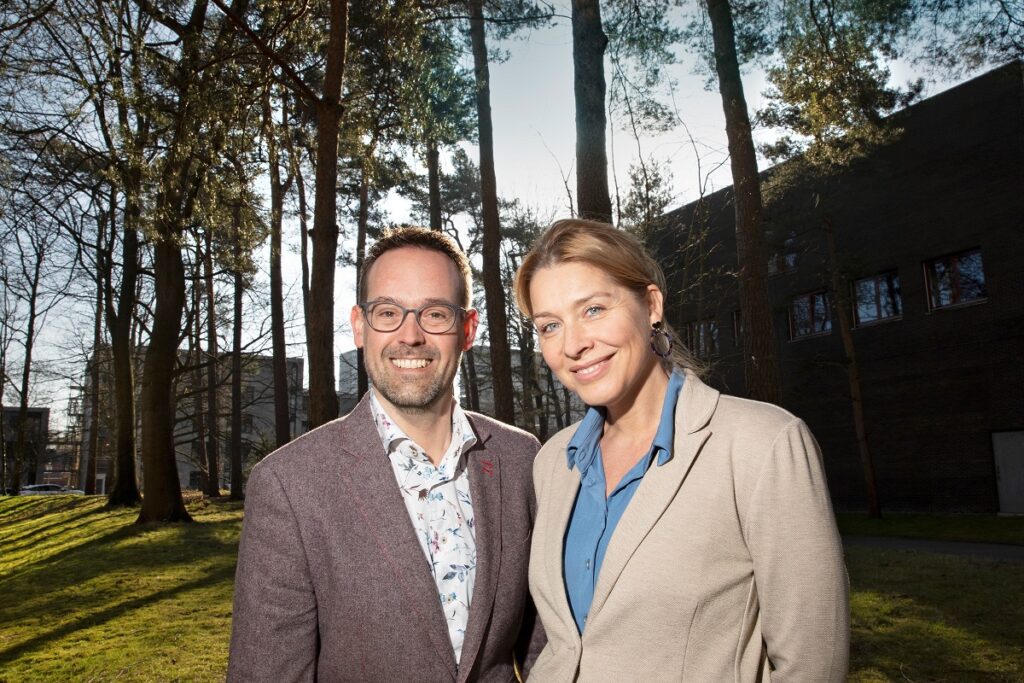The ombudsperson wants to identify patterns of insecurity at the university
What should you call them? Ombudsman, ombudsperson or short but powerful ombudsman? And what exactly do they do, because we already have confidential counsellors, don’t we? The new ombuds officers for students and staff explain why they are desperately needed at the university.

A violation of your digital privacy, violation of your social safety or fraud. These are just a few threats that can jeopardize a safe place to work and study for students and staff. Over the years, Tilburg University has set up a large number of ‘counters’ for help with various questions and complaint procedures.
For some complaints, the procedure is very clear: academic integrity and exam fraud, for example, are dealt with by special committees. Yet it can sometimes be quite difficult to find your way through the maze of support.
Not in a box
Sometimes a complaint does not fit into a box and it is not clear at first glance where a complainant can go. ‘We will only be involved when all the procedures have been completed. If no solution to the problem is reached there, they can come to the ombudsperson,’ explains Ingrid Segers-Claessen.
Segers-Claessen is the ‘ombudsperson for students’, as she calls herself. Together with Michiel Geursen, who has been appointed as ombudsperson for the employees, she works on solutions to problems that people may encounter, ranging from social safety to fraud.
From above
The ombuds officers therefore only take action as second-line care providers, while the confidential advisers provide first-line help. In doing so, Geursen and Segers-Claessen try to approach the problems from a helicopter view. But that doesn’t make them any less important, they emphasize themselves.
‘We do work confidentially, but the confidential adviser stands next to the student or staff. We don’t do that,’ Segers-Claessen emphasizes. ‘We actually stand between the student or staff member and the university. We are neutral and we do not represent the interests of one or the other. We actually look from above: what is the problem and how can it be solved?’
Patterns
‘Suppose that several people within a faculty or department suffer from social unsafety separately,’ Geursen explains. ‘Then they go to different confidential counsellors for their individual problems. They don’t know among themselves that there are several complaints.’
The ombuds officers can pick up on these signals and see what broader patterns of insecurity are emerging. This is an important supporting task for the university’s board. Geursen: ‘We are a mirror for the Executive Board, because the reports give us insight into what is going on in the organisation.’
Social safety
The ombuds officers were appointed at the beginning of this academic year, Geursen since November for employees and Segers-Claessen since August for students. Geursen’s role as ombudsperson is laid down in the latest collective labor agreement. Nevertheless, the board has also opted for an ombudsperson for students, a position that is still fairly new.
‘This is in line with the trend in recent years to pay more attention to social safety within universities,’ Segers-Claessen explains. ‘It is important that people feel heard and that they do not feel that they are floating within the organisation.’
“But that doesn’t mean they always get the answer they want,” she quickly adds. ‘If we come to the conclusion that everything went according to the rules, then that is also an answer.’
Barriers removed
There is already a cautiously positive response to their arrival, the ombuds officers notice during their ‘introductory tour’. Geursen: ‘We are both relatively new to the organisation, so we need to build a network. We are investigating how we can approach students and staff better.’
Segers-Claessen: ‘It is now a matter of removing barriers and making sure that we become more visible, and explain what we are for. When it comes to social unsafety, our call is: Please come,” she emphasizes. ‘If you are unsure whether you could come to us, just come. We don’t want problems to float unnecessarily.’






